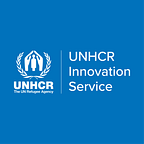Adapting Rules So Everyone Plays on One Team
In part one of this series, we explored how UNHCR’s Legal Affairs Service is adapting rules to improve their operations. Here, we look more closely at their related approach to teamwork.
By Amy Lynn Smith, Independent Writer + Strategist
UNHCR’s Legal Affairs Service (LAS) is keen to operate more efficiently and effectively in support of the people and colleagues they serve, not to mention the partners they work with around the world. As detailed in part one of this series, LAS has fully embraced all the concepts of innovation, including the use of new approaches, mindsets, technology and other tools, and teamwork.
Collaboration is an important component of the way LAS is re-thinking the rules of the playing field on which they operate — and how they interact as a team, both inside and outside of their unit.
For example, cash disbursements are a significant aspect of their work, and LAS is implementing new, more efficient processes. Anna Mildenberger, Associate Legal Officer, is one of the team members who is working on improving the way UNHCR handles cash-based interventions and the necessary negotiations. The key is preparing contracts up front so that UNHCR colleagues on the ground are ready to quickly finalize the arrangements. This enables them to deliver services to refugees weeks sooner than they could in the past.
“We created a working group made up of LAS, supply, finance colleagues and the cash experts,” Mildenberger explains. “We had the team together so everyone is aware of what the contract conditions are, so that’s very helpful and innovative compared to the traditional way of looking into a contract.”
Teamwork is essential to innovation, and LAS sets a stellar standard other units can follow.
“We’re not just answering a simple legal question, but becoming part of the larger solution and looking at things holistically to consider operational requirements and realities, rather than just the black-and-white legal questions and answers,” adds Susanna Waltman, LAS’ Executive Assistant. “The fact that what we’re doing lines up with the organization’s priorities in real time is of great value.”
Adopting a mindset of “lawyers plus”
LAS is doing even more than reworking their processes to be more innovative and efficient. The unit is also taking proactive steps to use their skills and expertise beyond the traditional purely legal role to address wider operational and institutional issues, a collaborative endeavor that may allow LAS to focus on more meaningful work as a result.
One example is their work in disputes, as well as grievances and disciplinary matters. Although LAS will always need to address cases brought to them by Human Resources, the unit is taking steps to deliver what Lance Bartholomeusz, Principal Legal Advisor and Head of LAS, refers to as “lawyers plus.” Rather than simply handling disputes, LAS is drawing on the information they glean from this work to develop strategies to help prevent disputes and actions requiring discipline in the first place.
Of course, confidentiality is carefully protected, but LAS is extracting lessons learned from the many cases they handle to provide guidance for the organization, particularly managers, so they can identify good and bad behaviors and respond accordingly in real time.
“Sexual misconduct is one good example,” Bartholomeusz says. “Our colleagues and people of concern should never be exposed to that, so we’ve taken off our lawyer hats to share our lessons learned to help prevent it from happening and make a difference in a concrete way.”
Using teamwork to create and share solutions
Having had the value of collaboration reinforced during their workshop with UNHCR’s Innovation Service, LAS is more focused on teamwork than ever. For example, the unit partners frequently with global law firms, particularly DLA Piper. The firm invited Bartholomeusz to attend a third-party summit on access to justice and technology last year, which gave him even more new ideas and potential partners to bring back to the office.
“It’s a very different sector to the one we usually deal with, but they are having to innovate to ensure that vulnerable people who need access to justice — family cases, criminal cases, benefits they were denied — and there was a lot to be learned,” he says. “We appreciate our partners exposing us to other innovators, and they’re equally interested in some of the solutions we’ve developed.”
Sharing innovative ideas across partners and within UNHCR is essential to embedding it into the organization’s daily activities, which is the ultimate goal. Although LAS may be “virtuosos of the rules,” says Dina Zyadeh, Associate Innovation Officer (Operations) for UNHCR’s Innovation Service, they demonstrate that any part of the organization can embrace innovation while working within the rules.
“When one part of the organization sees another team taking these steps, they realize they can do it, too,” she explains. “These are the kinds of emerging behaviors we’d like to see: a greater interest in innovation, and increased adoption of innovation frameworks and methods in their daily work.”
Plus, there’s a sense of deep satisfaction that can come from using innovation to find more efficient ways to operate, both individually and as a team — even within an organization that has a labyrinth of rules and policies in place that must be followed.
“Innovation enables you to find more solutions for more people,” Bartholomeusz says. “Many of us have worked for large law firms but we’re here for this humanitarian mission. So it’s not about just giving legal advice — it’s about making a difference. I think it’s exciting if innovation can help you make more of a difference.”
